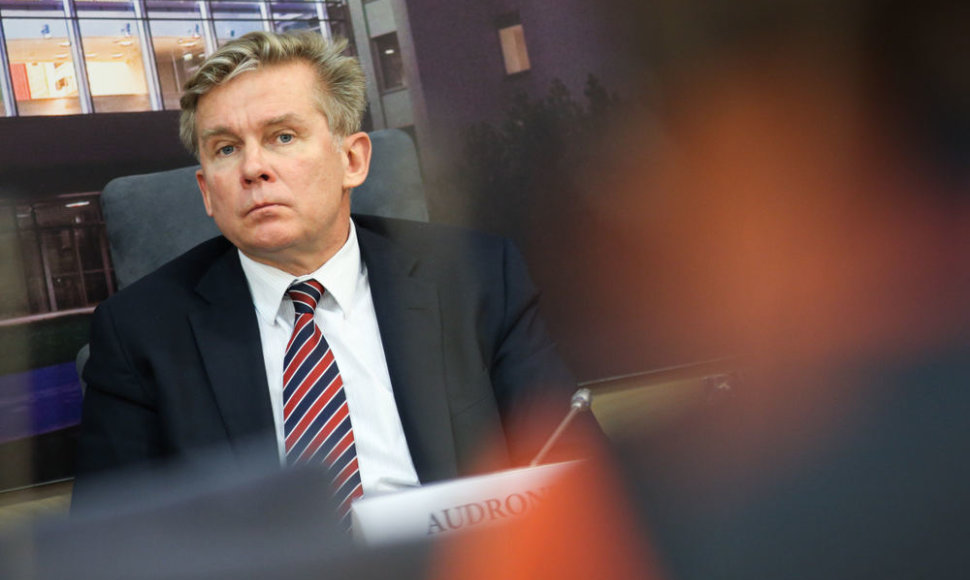The minister said he had stated the Lithuanian position that EU assistance to the Baltic states should not be reduced. Some countries want it slashed in the wake of the sharp decline in the gross domestic product (GDP).
During the meeting, which was also attended by EU President Herman van Rompuy, Ažubalis said he had also called for sufficient funding of decommissioning of Lithuania's Ignalina nuclear power plant without the final deadline, as well as increase of payments to farmers, so that the money received by Lithuanian, Latvian, and Estonian farmers is at least 75 percent of the EU average.
"We're in the most intense phase of the negotiations. Regardless of the tense situation in the euro zone, everybody needs to keep cool-headed and be consistent," the Lithuanian diplomacy chief said in a telephone interview to BNS from Brussels.
He confirmed that amid Britain's veto threats, a possibility is also discussed to try the most important decisions for a limited number of countries; furthermore, it cannot be ruled out that failure to approve the budget would lead to automatic application of the numbers in the current financial perspective.
"You know well that various possibilities are being discussed, even the possibility of an agreement among 26 countries, even the possibility of taking the 1/12 path," Ažubalis said.
Amid calls from Europe's biggest countries to slash EU budget, van Rompuy proposed last week that one-trillion-euro plan, proposed by the European Commission, be reduced to 973 billion.
In Ažubalis' opinion, the proposal revealed presence of "confrontations in the discussions."
"I don't know what corrections van Rompuy will make after dinner, which lasted until close to 1 AM," Ažubalis said when asked whether a new draft could be expected shortly.
Under last week's proposal by van Rompuy, Ignalina decommissioning projects would be granted 210 million euros in the 2014-2017 period, after which funding will stop. Lithuania says it needs three times as much and seeks that 2017 is deleted from the funding scheme, thus allowing EU funding beyond that time.
In Ažubalis' words, it is unacceptable to "start inventing new assistance deadlines, such as 2017, as it runs counter to the fundamental EU law." The minister said "the intensity of the decommissioning process will depend directly on the sums."
The project gives hope that an exception may be applied for the Baltic states in the structural aid cap, which would allow considering the huge economic recession of 2009 when Lithuania's gross domestic product (GDP) went down by nearly 15 percent.
According to the draft proposal, member-states whose GDP dropped by over 1 percent in the 2008-2010 may have the capping raised by a yet unspecified number, as compared with the general rule, which says that the assistance should not exceed 2.4 percent of the GDP.
Ažubalis also said that proposals for further cuts in the budget share allocated to EU common agriculture policy does not contribute to the objective of unifying direct payments, and the proposal to extend the period of unification aggravates the situation further.
"We want to receive at least what the countries listed above receive – they get about 75 percent of the EU average," the minister told BNS.
The EU summit, where the new EU budget will be discussed, is scheduled for Thursday and Friday.
Germany, France, and Great Britain, which are the biggest contributors to the EU budget, have called for cuts in the budget darft of more than a trillion euros proposed by the EC.
Observers do not rule out that the meeting may fail due to the rigid stance taken by Great Britain – in response to growing Euro-skepticism in the country, Prime Minister David Cameron has declared determination to veto the budget, if it is not slashed enough.












